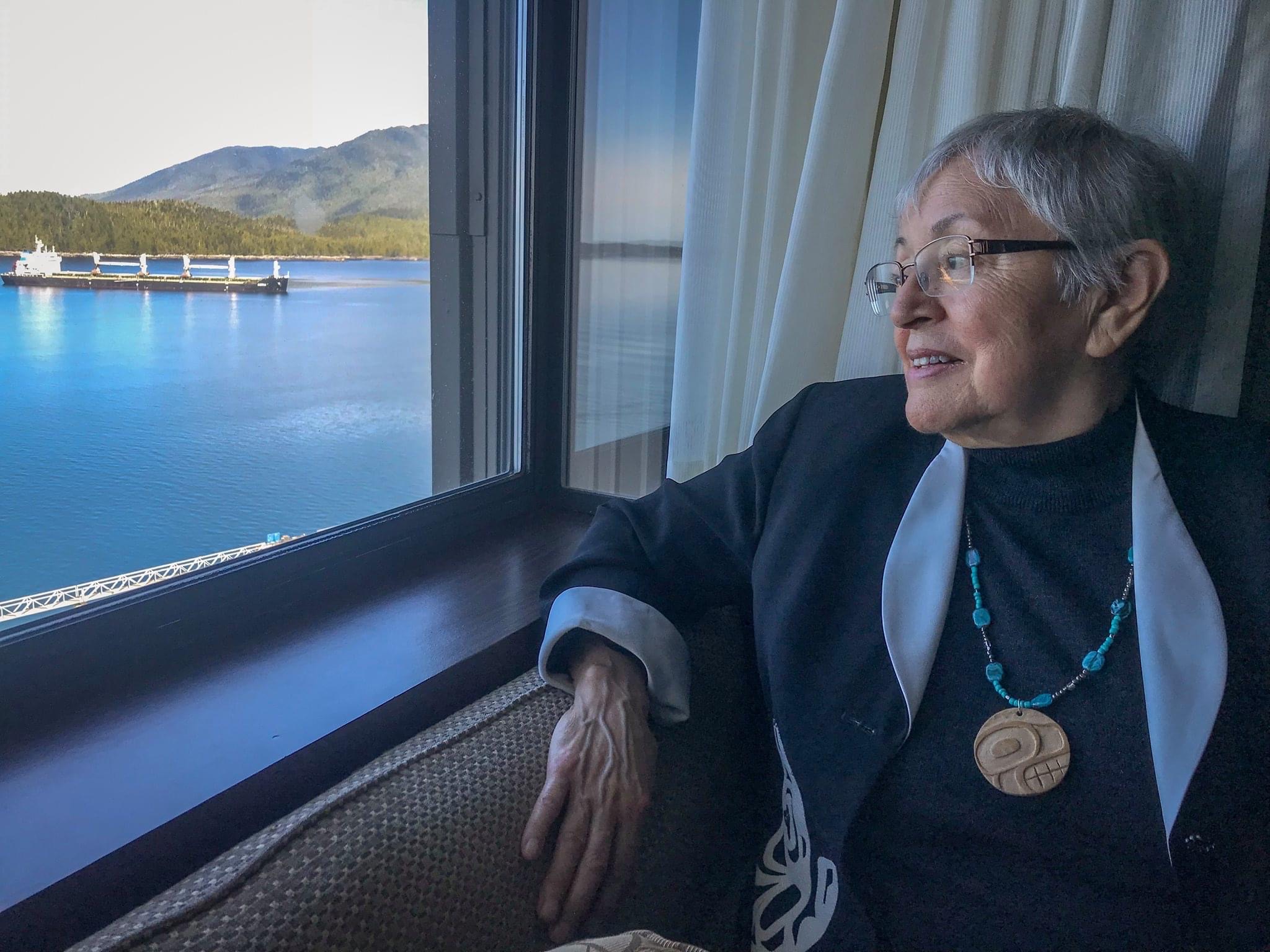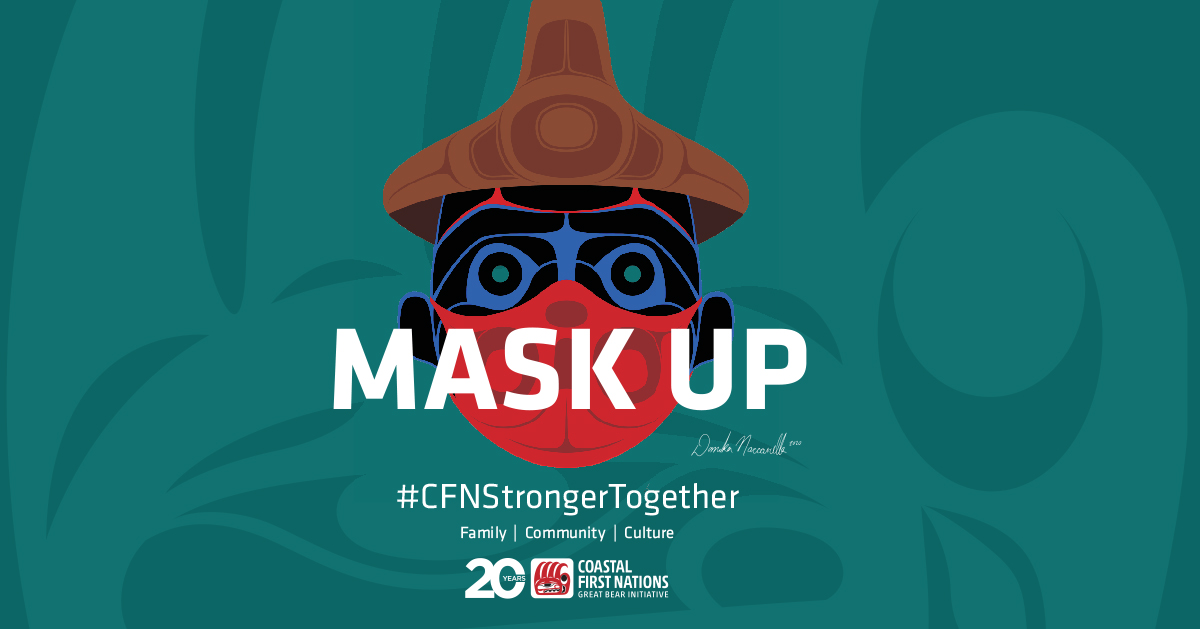By Hilistis Pauline Waterfall, Hailhzaqv Educator and Knowledge Keeper
The description “unprecedented” times is used to describe what is happening with the COVID-19 health crisis. To subscribe to this notion is to deny or negate the previous pandemics that First Nations peoples have experienced historically. From 1780 through to 1889, numerous smallpox epidemics have had catastrophic impacts upon First Peoples in British Columbia, and across Canada.
Hailhzaqv have stories of how our people, as accomplished carpenters, helped in the construction of Victoria. It was from here on June 11, 1862, that the gunboat “Forward” towed 26 canoes full of smallpox-infected First Peoples for more than 15 days to Fort Rupert, BC. My grandmother Hilistis shared stories about this devastating time, when Hailhzaqv canoes returned with survivors who passed on a disease, from which there was no immunity.
From 1847 to 1850, a measles epidemic also took a great toll on First Peoples’ populations. In 1918, a Spanish flu epidemic wreaked further apocalyptic devastation. My 93-year old mother, Peggy Housty, told me how her maternal grandmother lived through this epidemic. Her grandmother spoke of the nightmare of so many deaths each day that proper burials couldn’t be performed, or mortuary ceremonies and customs practised.
The removal of our children to residential schools far from home was also a form of plague. It devastated our people’s health and well-being as much as the diseases visited upon us. Residential school abuse spanned at least 160 years. In those five generations, we felt very deeply what society is now experiencing.
The loneliness of isolation during this pandemic time is not new to me. As a residential school survivor, I was removed from my home as a pre-teen and placed in an institute that was devoid of warmth and love. The abject loneliness I felt was shared by my dormitory peers. Many nights we cried ourselves to sleep missing the warmth, security, affection and support of our parents and communities.
The issue of food security is not new to me – nor was it new to my father who attended residential school. He told me about the unending hunger he and his peers experienced when inadequate foreign foods were forced upon them. I remember my own deep longing for a feed of traditional marine foods – smoked salmon, fresh herring eggs and roasted seaweed. Is it any wonder my freezer is full of traditional foods? Prepared and harvested for these very times when the grocery store shelves are empty?
Being unable to hug my loved ones is also not new to me. In residential school, we learned to build thick protective walls around our hearts. My 91-year old father died without once telling me that he loved me. Even though I knew he did, I longed to hear him say this. Yet how could he have, when he was punished repeatedly for showing any emotions?
When I see the news of aged parents detained in nursing homes – who can only see loved ones through window panes – I relate to the sadness of their families. Imagine how my mother feels, being socially isolated from the large family she so lovingly and carefully raised, mentored and guided over these five generations. This is particularly poignant, given that five of her children were taken from her at an early age, and only returned as young adults.
So no, this is not an unprecedented time for First Nations.
We’ve gone through many challenges and changes that have forced us to be strong, resilient and adaptive. For the first time, I am learning how to be in a relationship with myself. I have the space and time to excavate buried memories and work through them.
This is a healing time punctuated by moments of sadness and loneliness. But as with all things under the heavens, life renews itself, and good things will come out of this. As long as our hearts and minds remain open and positive.


